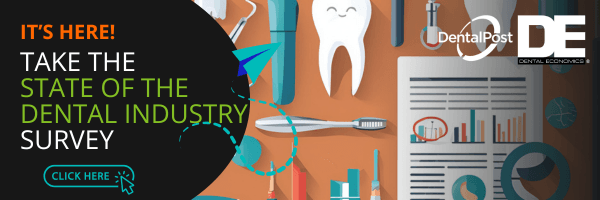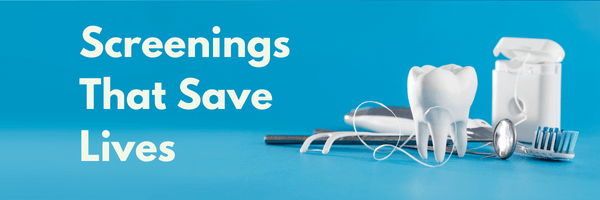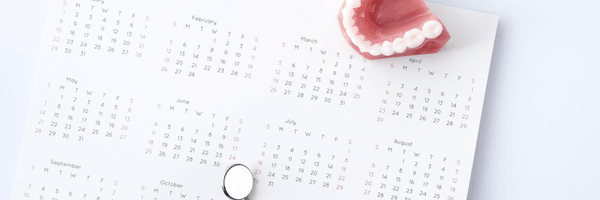.png)
How to Leverage Salary Data to Get a Higher Starting Dental Salary
Posted April 19, 2022
Imagine that you’ve seen a dental job listing that ticks all your work and lifestyle requirements. You’ve already applied, interviewed, and received a formal offer. You feel elated, but there’s one little snag: the starting salary they’re offering doesn’t match your expectations.
What’s your next move? Do you:
- Let your potential employer know you want to negotiate their offer?
- Say nothing and take the job?
- Decline their offer and look for other work?
What Would Other Dental Professionals Do?
How comfortable do others feel about bringing up the subject of a starting salary increase? A series of national surveys by Harris Poll reported that more than 50% of survey respondents had never negotiated for better pay because of this unease.
The survey also revealed that gender, age, industry, and role all impact confidence levels when discussing more pay. More men than women from the survey reported feeling confident enough to negotiate an initial salary offer. Employees with more work experience were also more likely to ask for a better starting salary than those with less time in the field.
Why Ask Anyway?
The top reason to bite the bullet and have those salary negotiations – regardless of your industry, age, or work experience – is that more employers are willing to negotiate pay than you think.
Dental employers today are more than incentivized to offer competitive and fair pay to attract and retain quality employees. Our Dental Hiring and Recruiting in a Tight Labor Market blog highlighted the lingering impact COVID-19 has had on the dental industry. Dental practices’ ability to take on more patients (while maintaining the same quality patient care) is limited as they struggle to find and replace staff.
You may also be surprised to learn that many employers intentionally offer lower starting salaries to new hires to leave wiggle room for increases. Accepting the first offer you get from a prospective employer without testing the waters may mean you’ll miss out on a higher starting salary.
How Do I Ask for a Higher Starting Dental Salary?
It’s wise to negotiate salary expectations armed with appropriate salary data. That way, the conversation can remain objective about what’s reasonable and fair.
Your potential employer may be unaware of market-related salary data for your position, experience, or education, so having this on hand will strengthen your bargaining position.
Who Is the Best Source for Dental Salary Data?
You can find some of the information you need from the U.S. Bureau of Labor and Statistics (BLS), which publishes regular State Occupational Employment and Wage Estimates (OEW) for all industry sectors.
DentalPost’s 2022 Salary Survey report provides the most updated salary data for U.S. dental professionals by position, experience, and state. This data will help you negotiate for the salary increase you can realistically expect based on your current dental skills, work background, education, and location.
Dental Salary Ranges Change by Job Role and Location
Where you work geographically will impact your earning potential. Dental professionals living in large metropolitan areas with higher living costs often make more than those working in small towns, for example.
Findings from our 2022 Salary Survey showed that full-time dental hygienists in rural areas earned $6,000 less median income yearly than full-time dental hygienists in metropolitan and suburban communities.
However, if you are a scarce resource in a less populated state, your chances of a higher wage typically increase. According to May 2021 U.S. Bureau of Labor and Statistics data, the mean wage for a Registered Dental Hygienist (RDH) working in Alaska was $ 55.53 per hour, while a Dental Hygienist in Georgia earned $ 39.12 per hour. That’s a rather big jump in compensation.
Your Dental Employment Type and Experience Will Also Impact Your Earning Potential
Continuing with BLS OEW statistics, we can see that dental practices in Georgia paid Dental Hygienists a bit more for their services in 2021 ($ 39.21 per hour) than outpatient centers in Georgia ($ 38.91 per hour).
The national average hourly wage for the dental hygienists who responded to our survey was $ 38.00. We also learned that top-earning RDHs in the U.S. have 10 to 19 years of experience and an average income of $71,599.
As you can see, gathering the correct salary data about your specialization and location makes preparing for salary increase negotiations much more straightforward.
Finding the Right Salary Survey Data For You
If you’re looking for the dental salary survey data specific to your position, click on the relevant link below. Scroll through the online report to find the information you need, or download the full report to read it offline.
View the entire:
- Dentist Salary Survey Report
- Dental Hygienist Salary Survey Report
- Dental Assistant Salary Survey Report
- General Front Office Staff Member Salary Survey Report
- Dental Practice Manager Salary Survey Report
- Dental Billing Specialist Salary Survey Report
Find a Job You Love With DentalPost
DentalPost is more than a dental job board; we lead the industry in metric-based career matching and up-to-date dental salary and workplace data.
If you are new to DentalPost, sign up for a free Job Seeker account with us today. You’ll have access to several features. They include our free career and personality assessments, job listings by dental position and location, salary survey reports, and more. Then, you can build your resume profile for future job applications. Setting your profile to public will allow you to be found by over 60,000 registered dental hiring managers and practices.
Alternatively, download our mobile app from Google Play or the Apple Store to access DentalPost on the go.
We connect and educate more than 900,000 job seekers in the U.S. and Canada to build better places to work through teams that excel.





.png)


